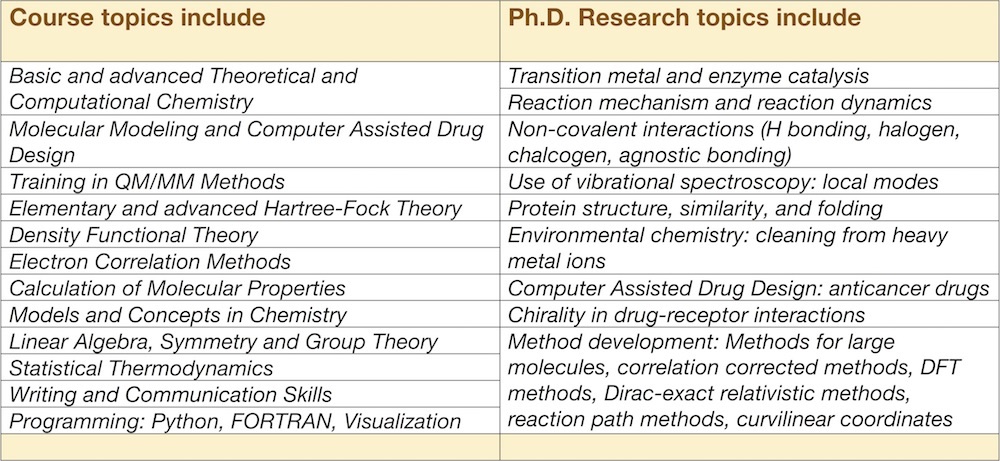The new Ph.D. Degree in Theoretical and Computational Chemistry offers an intensive and success-oriented education in computational and theoretical chemistry, with the goal to prepare students for a future career in academia or private industry.
If you are interested, please send an email to ekraka [at] smu.edu.
Financial support
Each Ph.D. student receives a stipend of $25,000 and a full tuition waiver per annum as well as substantial health insurance support and travel allowance to national conferences. In addition, prestigious Moody Fellowships are available on a competitive basis.
Excellent job opportunities
The demand for a highly trained Computational and Theoretical Chemistry workforce is increasing. ChemCensus2010 reports that the number of computational chemists with a Ph.D. degree working in industry grew from 55,200 in 1990 to 109,500 in 2010. The U.S. Bureau of Labor Statistics predicts that until 2022 that there will be a further annual increase of at least 15%. This is a faster growth than found for all other chemistry related jobs.
Computational facilities
SMU's new High Performance Computer (HPC) Center is the largest among all private universities of the size of SMU providing excellent computational facilities.
Design of the new program
A. Comprehensive 4-year degree plan, (66 units): (more information)
Including courses on advanced computational chemistry, computer assisted drug design, Hartree-Fock Density Functional Theory and electron correlations methods; models and concepts in chemistry, symmetry and group theory, and an extensive training how to write a paper, prepare for presentations, interviews and your future career path.

B. Mandatory are also:
- One-year teaching-assistant (TA)-ship (irrespective of stipend; preferentially as assistant in our theoretical and computational chemical courses).
- Presentation at a regional/national meeting and SMU’s annual research day.
- Attendance of the annual CATCO Workshop.
C. Success-oriented research starting from the first year
A broad spectrum of modern research topics is available stretching from method and program development to modeling of H-bonding in materials and biochemical compounds, homogenous and enzyme catalysis, computer assisted drug design. CATCO’s unique synergy of program development and application of these programs to pending chemical problems offers a unique research experience. Visit our Research Page for more information.
